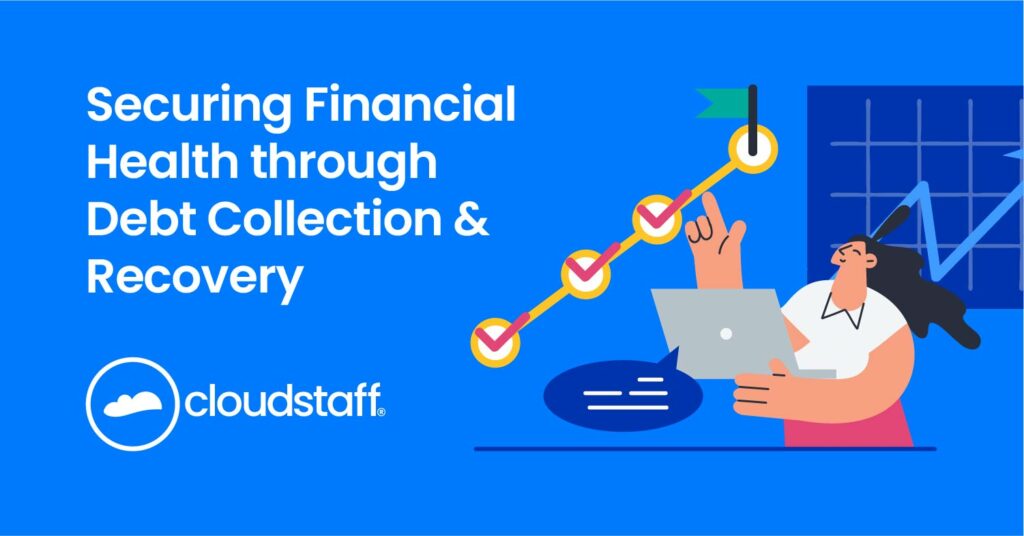With effective collection practices in place, businesses can secure timely payments, reduce financial risks, and maintain healthy client relationships – ultimately establishing a sturdy foundation for sustained success. But sometimes, things don’t always go as planned. There are these risks such as non-payment or late payments that can impact your cash flow and risk the financial health of your business.
Solid accounts receivable collection practices are the backbone of financial stability for any businesses, ensuring smooth operations and safeguarding against potential pitfalls.
These practices encompass a range of activities, from chasing overdue payments to managing bad debts and handling accounts receivable.
Recent statistics indicate that debt collection agencies in the United States achieve an average success rate of 20-30%. Plus, it’s more important than ever to keep your accounts receivable process efficient by partnering with a reliable debt collection or recovery service provider.
Now, let’s dive deeper into the difference between debt collection and debt recovery.
What is debt collection?
When a debtor has missed a payment on a loan or something they’ve bought on credit, the creditor will reach out to remind you to make that payment. This process is called debt collection, and usually, it’s the creditor themselves who handle it in-house.
For bigger businesses, they often have a whole department dedicated to chasing down debts. They’ll start contacting debtors about a month after they’ve missed their payment.
The aim is to reach out to consumers who are starting to face financial difficulties, aiming to solve the problem before it worsens. Early intervention usually includes personalized assistance, financial advice, and arranging payment schedules to assist the consumer to reduce their debt or recover financially.
What does a debt collection team do for you?
The main objective of this position is to handle debt collection. Other responsibilities are to:
- Ensure that customer accounts are professionally managed and collected to minimize the company’s debt position, reducing the number, age and dollar value of accounts operating outside of the company’s trading terms.
- Ensure customer accounts are accurate and handle customer requests promptly and effectively.
- Provide progress reports and participate in ledger reviews with the Accounts Receivable Team to ensure timely collection of payments and maintain accurate and updated customer records.
- Coordinate with the Accounts Receivable and General Accounting team on queries regarding timing and accuracy of customer collections
What is debt recovery?
If the creditor has tried to get in touch and sort out a payment plan and the debtor still fails to settle the money owed, the creditor can bring in a third party – a debt recovery agency – to help them get their money back.
While debt collections are conducted directly by the company, third-party engagements are carried out under the banner of the collections agency.
If the third-party agency’s efforts to reach out via emails, phone calls, or letters fail, legal action may be pursued following predefined protocols.
However, before they can take the situation to court, there are certain steps they need to follow, known as the “Pre-Action Protocol,” which is a set of rules they have to abide by before escalating the situation legally.
What does a debt recovery agency do?
A third-party debt recovery agency helps you:
- Keep track of assigned accounts to identify outstanding debts.
- Make contact with relevant parties via phone calls.
- Plan a course of action to recover outstanding payments.
- Locate and contact debtors to inquire of their payment status.
- Negotiate payoff deadlines or payment plans.
- Handle questions or complaints and investigate and resolve discrepancies.
- Alert superiors of debtors unwilling or unable to pay when necessary.
- Maintains up-to-date customer contact information in the collections systems.
Need the right people for your debt collection and recovery tasks?
Whether you’re a business seeking to improve your accounts receivable / debt collection processes, or a debt recovery agency struggling to find and retain staff, Cloudstaff can connect you with the finest talent available in the market.
Debt collection outsourcing with Cloudstaff gives you access to our vast pool of 500,000 candidates – helping you find high-quality accounts receivable specialists tailored to your specific needs.
Not only can we recruit the talent you need, but we also have enterprise-grade technology to make your onshore and offshore teams work seamlessly. Plus, our inclusive workplace culture will ensure your remote staff will stay with you for the long run. That’s just one of our secrets why we have an industry-leading retention rate.
Feel free to contact us today to learn more.

